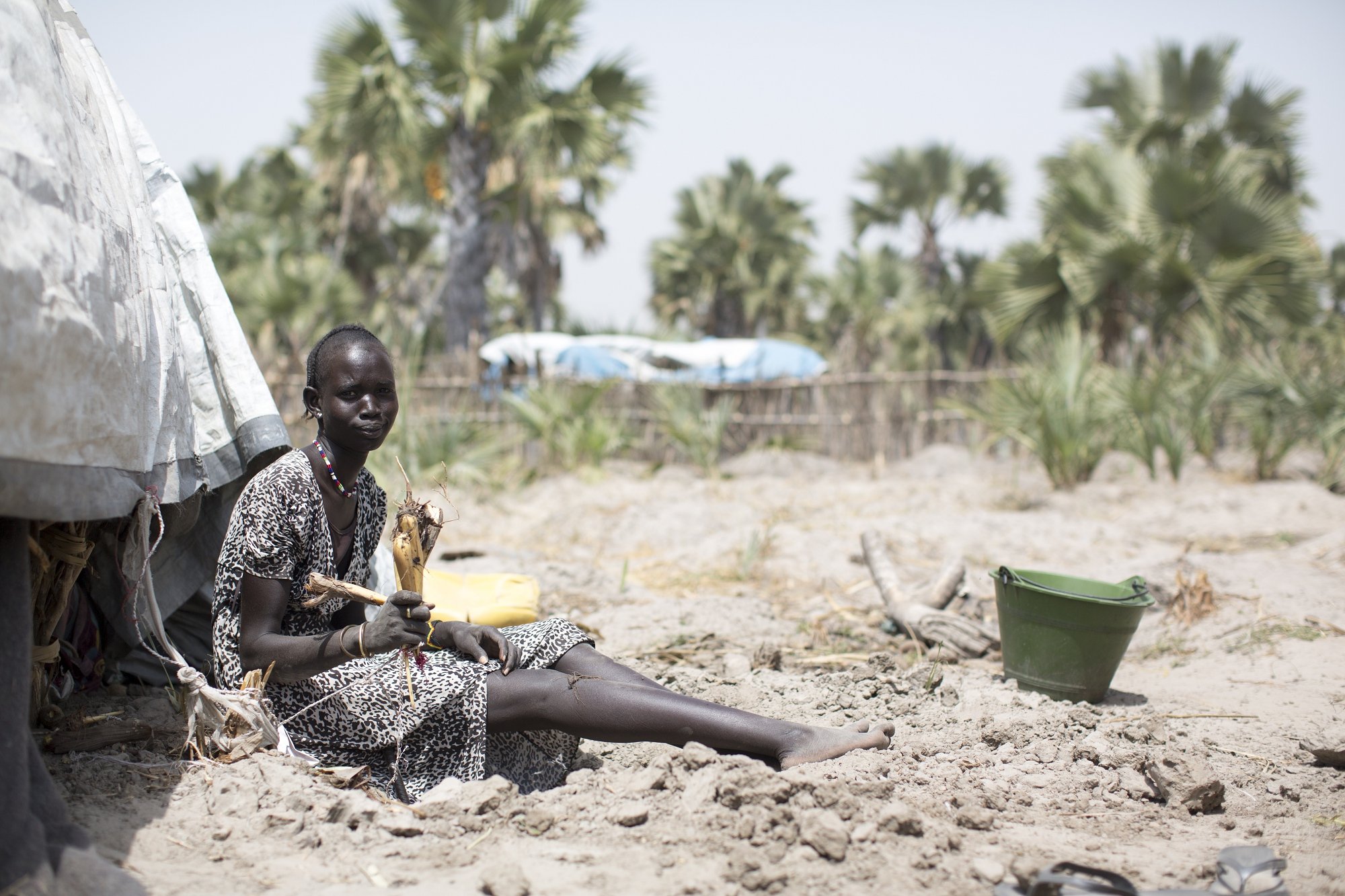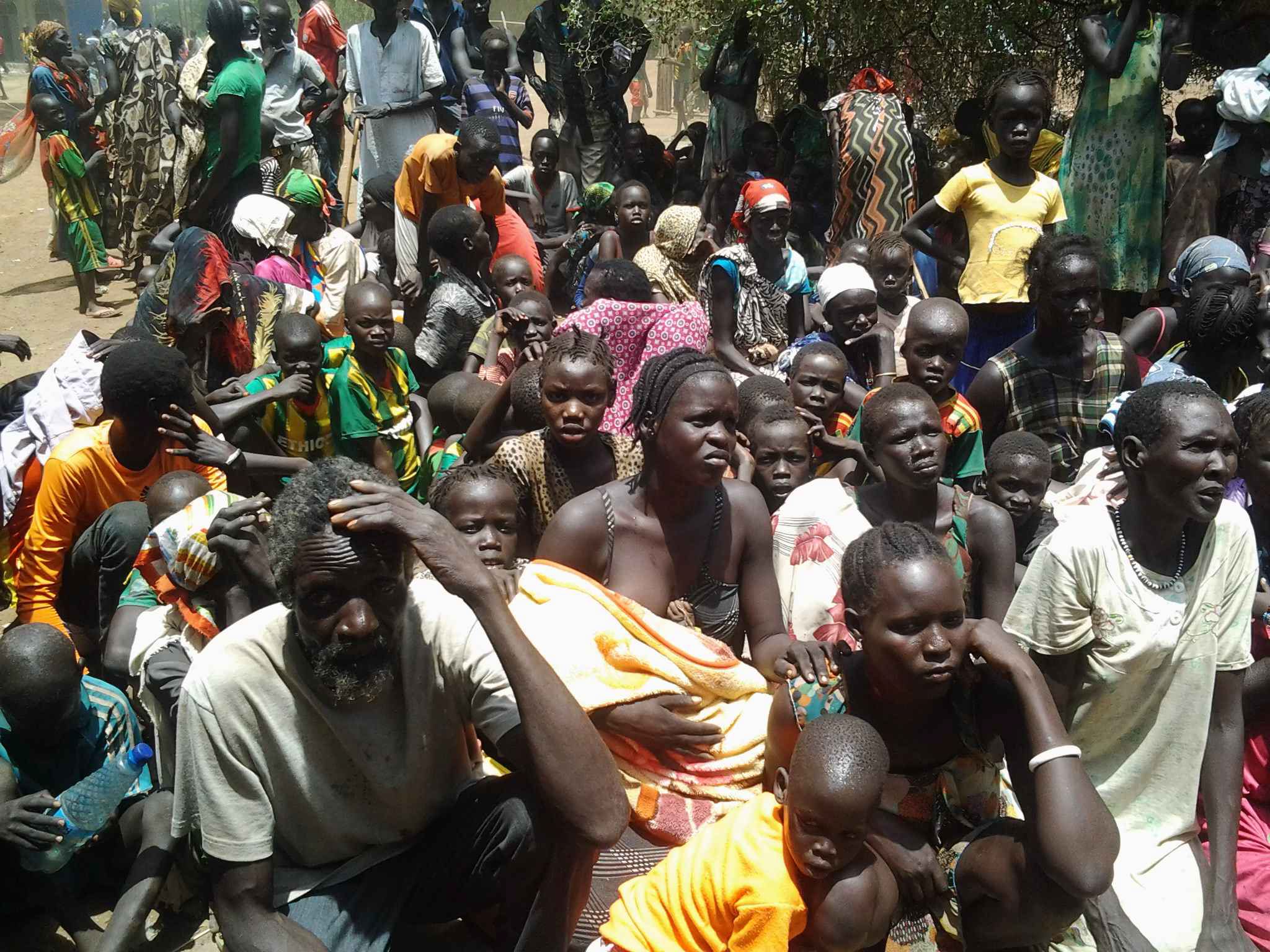Hundreds flee fresh air and ground attacks and cross to South Sudan
Hundreds flee fresh air and ground attacks and cross to South Sudan

JUBA, South Sudan, September 25 (UNHCR) - The UN refugee agency said Tuesday that fresh air and ground attacks in Sudan's South Kordofan state are causing a renewed population influx to South Sudan.
"About 100 refugees a day are arriving in the border town of Yida, in Unity state," a spokesperson said, adding that the "refugees are in poor health and without any belongings." Some refugees told UNHCR they had also fled because of acute food shortages in South Kordofan. Many said they planned to build a shelter in Yida refuge camp before returning across the border to fetch family members.
"We anticipate an increased influx into Yida as the rains subside and if fighting further escalates in South Kordofan. As arrivals pick up, there could be up to 80,000 refugees by the end of the year," said UNHCR's Melissa Fleming. The remote and hard to reach Yida camp is crowded with more than 64,200 refugees, so additional sites for new arrivals will be required to avoid congestion and associated health risks.
Fleming said that with tension increasing in border areas, UNHCR was "extremely concerned" about the safety of the refugees in Yida camp, which lies close to the border. "UNHCR continues to work with the refugee community to advocate for the relocation of the settlement to a safer location as soon as roads reopen [when the rainy season ends in November]," she added.
UNHCR has also been supporting the South Sudanese authorities in their efforts to ensure there are no arms or combatants in Yida camp and to prevent forced recruitment. Recently, however, a search for weapons in the settlement has led to cases of arbitrary detention and abuse of refugees.
"Together with our partners, we have been monitoring the situation and intervening to secure the release of those detained," Fleming stressed.
Meanwhile, UNHCR is concerned that heavy rains and flooding in South Sudan's Upper Nile state could cut road access to camps hosting some 105,000 refugees. This could affect assistance as well as the continuing success of intensive health, hygiene and nutrition campaigns launched in May to combat malnutrition and an outbreak of hepatitis E.
Many roads are already flooded and may soon become impassable. So far, the town of Bunj has been the most affected. "We are particularly concerned about refugees in Doro camp, adjacent to Bunj town, where some 75 families have been affected by the floods in the past few days," said UNHCR's Fleming.
She added that these families had been moved to higher, unflooded areas of the camp and provided with assistance. The three other camps in Upper Nile - Jamam, Yusuf Batil and Gendrassa - have not been affected by flooding.
Over the weekend, humanitarian workers delivered 14 tonnes of nutritional aid to Doro, using tractors and trailers to get through the water and mud. The Upper Nile is an area largely affected by seasonal rains and it may sustain further environmental damage should floodwaters from the Ethiopian highlands reach South Sudan this year.
While the end of the rainy season should herald easier access to the camps and improved living conditions, UNHCR and partners anticipate continuing new refugee influxes from Blue Nile state over the next few weeks. UNHCR fears they will be in poor health, especially children, who may suffer from acute malnutrition as conditions across the border worsen. This will represent a major challenge for the humanitarian community.
South Sudan currently hosts some 201,000 refugees, including more than 170,000 in Unity and Upper Niles states. UNHCR needs US$186 million for its emergency operation to help Sudanese refugees fleeing to South Sudan from South Kordofan and Blue Nile states. The refugee agency has so far received US$71 million and is reaching out to governments, the private sector and individuals for support.








